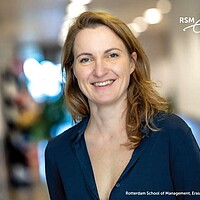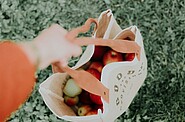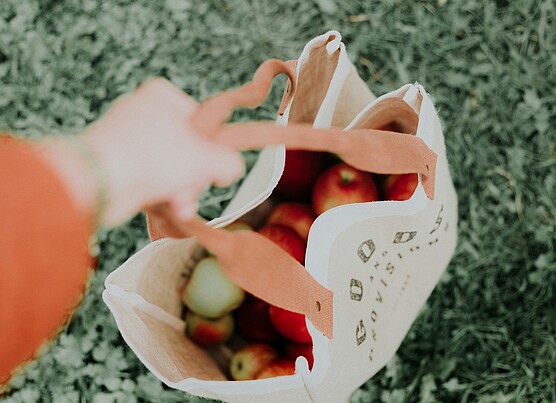Profile
Please also see my personal website and the website about an ongoing research project to foster sustainable behavior for more information.
Publications
Article (9)
Academic (9)
-
Krefeld-Schwalb, A., Sugerman, E. R., & Johnson, E. J. (2024). Exposing omitted moderators: Explaining why effect sizes differ in the social sciences. Proceedings of the National Academy of Sciences of the United States of America, 121(12), Article e2306281121. https://doi.org/10.1073/pnas.2306281121
-
Krefeld-Schwalb, A., & Scheibehenne, B. (2023). Tighter nets for smaller fishes? Mapping the development of statistical practices in consumer research between 2008 and 2020. Marketing Letters, 34(3), 351-365. https://doi.org/10.1007/s11002-022-09662-3
-
Krefeld-Schwalb, A., Wall, D., Johnson, E. J., Toubia, O., Bartels, D. M., & Li, Y. (2022). The More You Ask, the Less You Get: When Additional Questions Hurt External Validity. Journal of Marketing Research, 59(5), 963-982. Article journals.sagepub.com/doi/pdf/10.1177/00222437211073581. https://doi.org/10.1177/00222437211073581
-
Krefeld-Schwalb, A., Pachur, T., & Scheibehenne, B. (2021). Structural parameter interdependencies in computational models of cognition. Psychological Review, 129(2), 313-339. https://doi.org/10.1037/rev0000285
-
Krefeld-Schwalb, A., & Rosner, A. (2020). A new way to guide consumer's choice: Retro-cueing alters the availability of product information in memory. Journal of Business Research, 111, 135-147. https://doi.org/10.1016/j.jbusres.2019.08.012
-
Krefeld-Schwalb, A., Donkin, C., Newell, B. R., & Scheibehenne, B. (2019). Empirical comparison of the adjustable spanner and the adaptive toolbox models of choice. Journal of Experimental Psychology: Learning Memory and Cognition, 45(7), 1151-1165. https://doi.org/10.1037/xlm0000641
-
Krefeld-Schwalb, A. (2018). The Retro-Cue Benefit for Verbal Material and Its Influence on the Probability of Intrusions Under Dual-Task Conditions. Experimental Psychology, 65(3), 128-138. https://doi.org/10.1027/1618-3169/a000400
-
Krefeld-Schwalb, A., Witte, E. H., & Zenker, F. (2018). Hypothesis-Testing Demands Trustworthy Data-A Simulation Approach to Inferential Statistics Advocating the Research Program Strategy. Frontiers in Psychology, 9, 460. https://doi.org/10.3389/fpsyg.2018.00460, https://doi.org/10.3389/fpsyg.2018.00460
-
Krefeld-Schwalb, A., Ellis, A. W., & Oswald, M. E. (2015). Source Memory for Mental Imagery: Influences of the Stimuli's Ease of Imagery. PLoS One (online), 10(11), e0143694. https://doi.org/10.1371/journal.pone.0143694
Comment/Letter to the editor (1)
Academic (1)
-
Krefeld-Schwalb, A., Hua, X., & Johnson, E. J. (2025). Measuring population heterogeneity requires heterogeneous populations. Proceedings of the National Academy of Sciences of the United States of America, 122(8), Article e2425536122. https://doi.org/10.1073/pnas.2425536122
Conference proceeding (1)
Academic (1)
-
Krefeld-Schwalb, A., Scheibehenne, B., Rieskamp, J., & Berkowitsch, N. (2017). Dependent Choices in Employee Selection: Modeling Choice Compensation and Consistency. In CogSci 2017 - Proceedings of the 39th Annual Meeting of the Cognitive Science Society: Computational Foundations of Cognition (pp. 2457-2462). The Cognitive Science Society.
Preprint (1)
Academic (1)
-
Krefeld-Schwalb, A., & Scheibehenne, B. (2020). Tighter nets for smaller fishes: Mapping the development of statistical practices in consumer research between 2011 and 2018. Center for Open Science. https://doi.org/10.31234/osf.io/xjgyk
Featured in the media
-
174 young researchers in the Netherlands receive grant
News in brief: 174 academics who have just received their PhDs and are at the beginning of their scientific careers will receive a grant from the government via NWO Veni grants to develop their own research ideas. [RSM recipients…
Wednesday, 17 July 2024 -
Exposing omitted moderators: Explaining why effect sizes differ in the social sciences
Research from Antonia Krefeld-Schwalb: Applications of behavioral science face an important problem: Interventions often exert substantially different effects across contexts and individuals. Antonia and her co-researchers …
Monday, 11 March 2024
Featured on RSM Discovery
Discover why nudges work differently on people in various settings. Learn how cognitive variables affect nudge effectiveness in this study by RSM's Dr. Antonia Krefeld-Schwalb and co-researchers.



